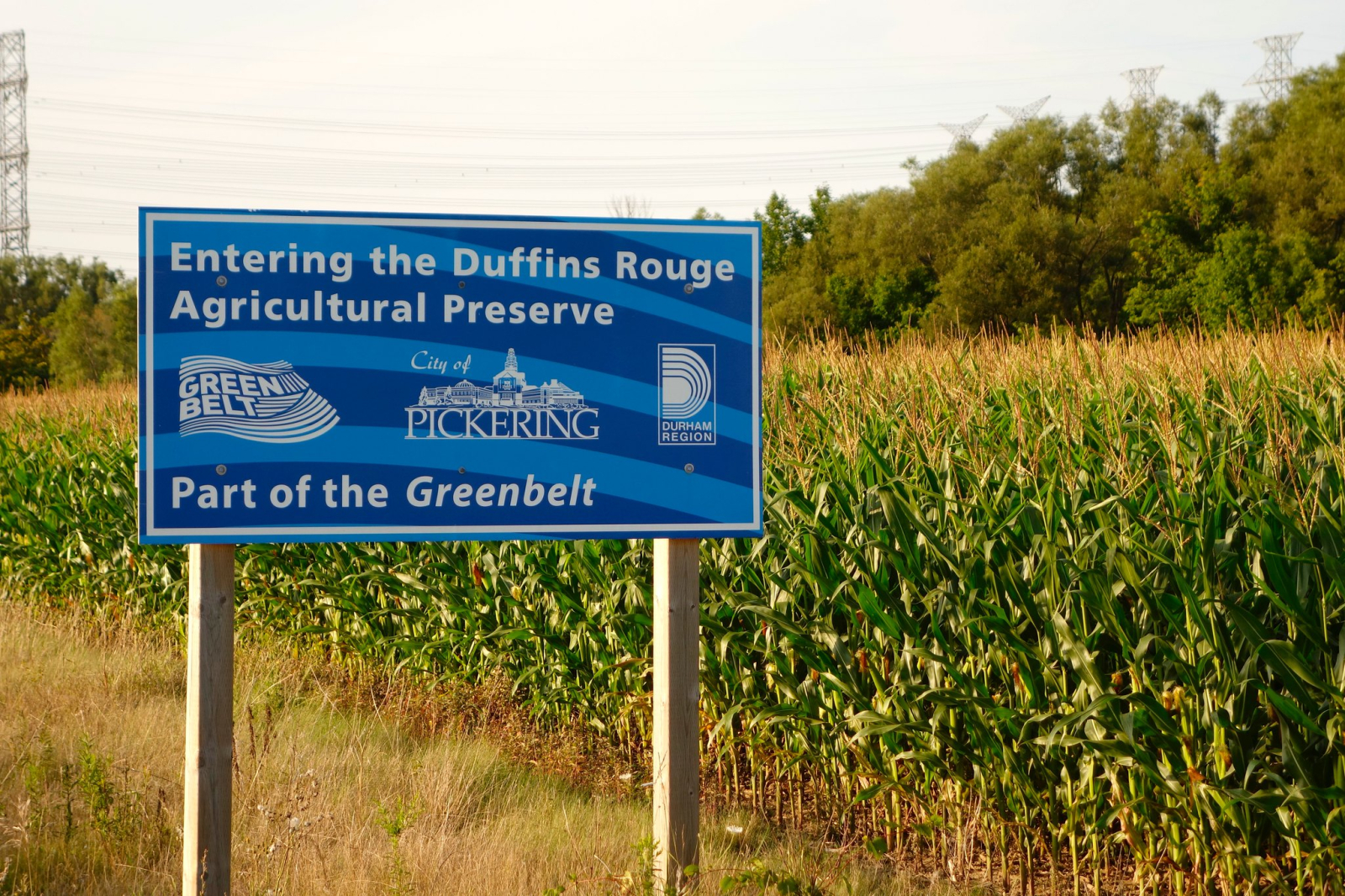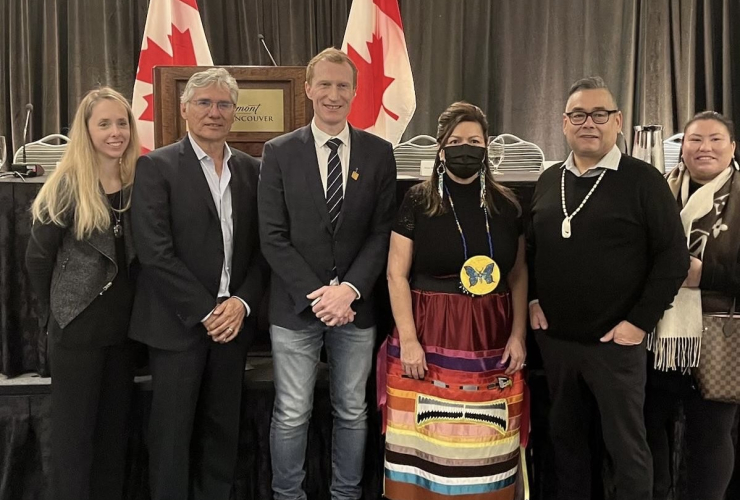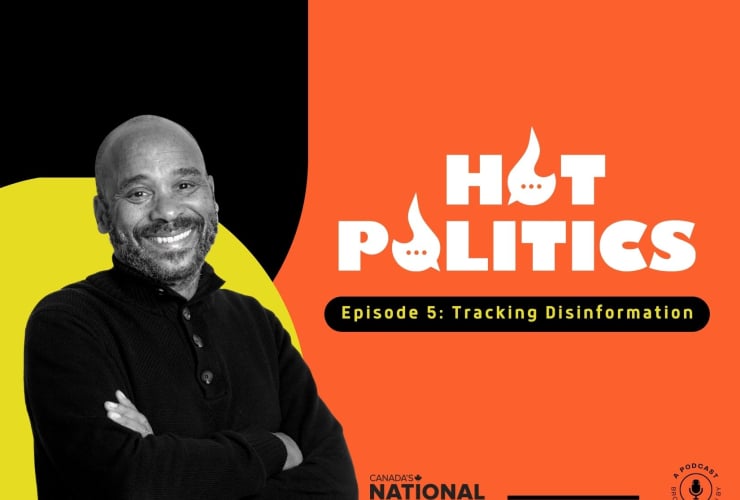If provincial and municipal governments allow developers to guide where and how they protect the environment, it will be impossible for Canada to meet its goal to protect 30 per cent of the country’s lands and waters by 2030, conservationists warn.
The grim reminder follows the Ontario government’s widely criticized decision last month to open up 7,400 acres of previously protected Greenbelt land for housing developments, despite broad opposition to the plan.
On paper, the amendment from the Municipal Affairs and Housing Ministry is a swap that adds an additional 9,400 new acres to the Greenbelt’s protection area, an “overall expansion” of 2,000 acres.
Although it sounds like the Doug Ford government is leaving the Greenbelt bigger and better, ecological compensation policies like this one are usually an illusion, said University of Waterloo associate professor Rebecca Rooney in an interview with Canada’s National Observer.

“Ecosystems exist in the context of the landscape in which they developed,” said the wetlands ecologist, adding the specific habitat and animals in a given ecosystem are dependent on the local climate, how much water is available and how that ecosystem connects to others nearby.
“This idea of being able to move habitats around the landscape, as if they were little chess pieces — it’s actually insane. It’s so divorced from reality because you can’t just pick up a forest and move it.”
Ontario’s Greenbelt safeguards two million acres of farmland, forests, wetlands, rivers and lakes. It is home to irreplaceable natural resources that serve the wildlife existing within it, and also the surrounding municipalities by cleaning the air and water, reducing flood risks and ensuring people have access to greenspace and specialty crops.
Developing 15 parcels of previously protected Greenbelt will bring the same consequences as other compensation policies, despite the government’s reasoning that the damage brought to these areas will be offset with the addition of 13 new parcels, said Rooney.
“Compensation, in practice, is a one-way ratchet. We lose ecosystem services, ecological function, biodiversity value, all while sort of lying to the public and pretending we’ve maintained some equivalence in ecosystem function through this trade,” said Rooney, adding that everybody loses — except for developers.
Ontario’s Minister of Municipal Affairs and Housing Steve Clark is currently undergoing an inquiry from the province’s integrity commissioner into whether he or his office tipped off any property developers about plans to open up the Greenbelt for development. Ontario’s auditor general will also be auditing Greenbelt land sales to developers.

Complaints to the integrity commissioner and auditor general cited investigations by CBC Toronto, the Globe and Mail, the Toronto Star and the Narwhal that found some property developers bought these parcels of land in the last few years, despite the government’s insistence it wouldn’t develop the Greenbelt after facing backlash over the idea in 2018.
These investigations also concluded some developers made big donations to the Progressive Conservative Party, so there are concerns about potential conflicts of interest and sharing of insider information. In 2021, a Canada’s National Observer investigation also found the Ford government has used unappealable special orders, allowing powerful developers — including some who have donated to the governing Progressive Conservative Party — to bypass the usual approval process and build in ecologically sensitive areas.
When asked by CNO how these changes to the Greenbelt could affect biodiversity, Ontario’s Ministry of the Environment, Conservation and Parks avoided answering the question.
The ministry’s communications team also did not directly respond when asked whether Ontario has a conservation goal for 2030, or if the ministry would commit to the federal goal of conserving 30 per cent of land and water by 2030. Instead, the ministry wrote in an emailed statement to CNO, the province “remains committed to protecting natural spaces across Ontario, and continues to make progress in expanding its protected area systems.”
Dan Kraus, conservation scientist and director of national conservation with Wildlife Conservation Society Canada, however, isn’t so sure about this.
“We’re seeing the loss of nature in some of the places where we need nature the most … We know that these lands support many different species of wildlife, including species at risk,” he said in an interview with CNO.
The Ontario auditor general’s 2020 and 2021 report confirmed the province is failing to protect species at risk and that its actions “have not been sufficient” to improve the situations of these species or their habitats. It concluded the Environment Ministry’s systems and processes for approvals even facilitated and enabled harm to these species and their habitats.
In line with these recent changes to the Greenbelt, the report also found development permit applications that were known to harm species at risk were always approved.
Doug Varty, former chair of Ontario’s Species Conservation Action Agency, stepped down from his position in December in protest over similar concerns.
“Like many Ontarians, I have become increasingly disappointed in the recent direction of the Ford government with respect to land [and] Greenbelt protection, watershed protection, sprawl and other related matters,” he wrote in a post on LinkedIn.
“In my view, the province is not listening to or acting in the best long-term interests of the people of this province. As such, I have made a personal decision [to] resign from this public appointment.”
“My concern is, are we just putting Greenbelt in places where we don’t have development pressure? Because that really tests our resolve around how committed we are to protecting nature,” said Kraus. “If we just fold wherever developers want to build more houses and say, ‘Well, we’ll just move it to somewhere where there’s no development pressure,’ that’s not really a commitment to protect nature or the benefits that nature provides to people.”
Since the federal government committed to 30 by 30 on the international stage at the United Nations biodiversity conference in December, only B.C., Quebec and the Yukon have officially agreed to match this goal.
As for how the federal, provincial and municipal governments should approach Canada’s 30 by 30 commitment, both Rooney and Kraus agreed that partnering with Indigenous communities should be the main way forward.
“Through working with Indigenous partners, we can try to redress some of that injustice that happened on a social level while also enhancing biodiversity conservation and habitat management,” said Rooney, highlighting how two studies — one published in 2021 by Amstrong, C.J. et al. and one published in 2019 by Schuster, R. et al. — showed that lands managed by Indigenous peoples can provide greater biodiversity than even national parks.
– With files from Morgan Sharp
In the 4+ years that Doug
In the 4+ years that Doug Ford has been in power, there is little or no evidence that this Ontario government views conservation as anything other than "red tape" that inconveniences the construction industry.
Years ago , when someone
Years ago , when someone coined the phrase "biology is destiny" (no doubt smirking) my mind leapt back to the one and only course I took in Geology at university. Oh no, thought I ". "Geology is destiny". Nothing I have learned since, about ecosystems, climates, surviving on earth has changed my mind about Geology and destiny.
Anyone with pretensions about governing Ontario, or participating in the re-wilding of our stupendously varied province absolutely must read "The Once and Future Great Lakes Country an Ecological History" by John L.. Riley. There may well be other magisterial explorations of Ontario's other notable regions, the Canadian Shield, the Boreal Forest, James Bay, and the tundra, Hudson's Bay and the Arctic....but this book is the in- depth history of the Ontario most of us know and that fostered the Ford Family as well as countless other "Settlers" from around the globe. It encompasses a land mass larger than most of Europe's nations and its remote regions most of us will never see. It is about the land we have paved over, the forests, fields, and waterways we have irrevocably changed with our human infrastructure. One of the most memorable things Riley writes is that once we destroy an ecosystem, we can never restore it to the way it was, Nature doesn't work that way. Nature can recover from devastation but it cannot recreate what once was there. Nature is too dynamic. Nature never repeats itself.
Canadian Provincilal
Canadian Provincilal governments are neoliberal. Anything and everything that stands in the way of private business and profits has to be eliminated. The environment is first, government regulations next, labour costs such as benefits and unions. 40 years of neoliberalism is coming home to roost and as most do not know what this ambiguous political and economic system represents, there is little stopping it. You can be assured the UCP in Alberta will try to start coal mining again in the Eastern Slopes, this time for hyrogen. The infection on neoliberalism is even in BC where they are h*** bent on cutting every tree. See Canfor mill closures thus week. The environnent does not stand a chance. Even we citizens have been commodized , we are now consumers,not citizens. And as Canadian article yesterday indicated, food inflation here is predominently driven by corporate profits. As we hurry down the path of increasing inequality, do we know what the results will be? A. Less environment protection first on the list.
If Doug Ford could read, he
If Doug Ford could read, he could consult a dictionary and discover that "governing" and "enabling" are not synonyms.






Comments